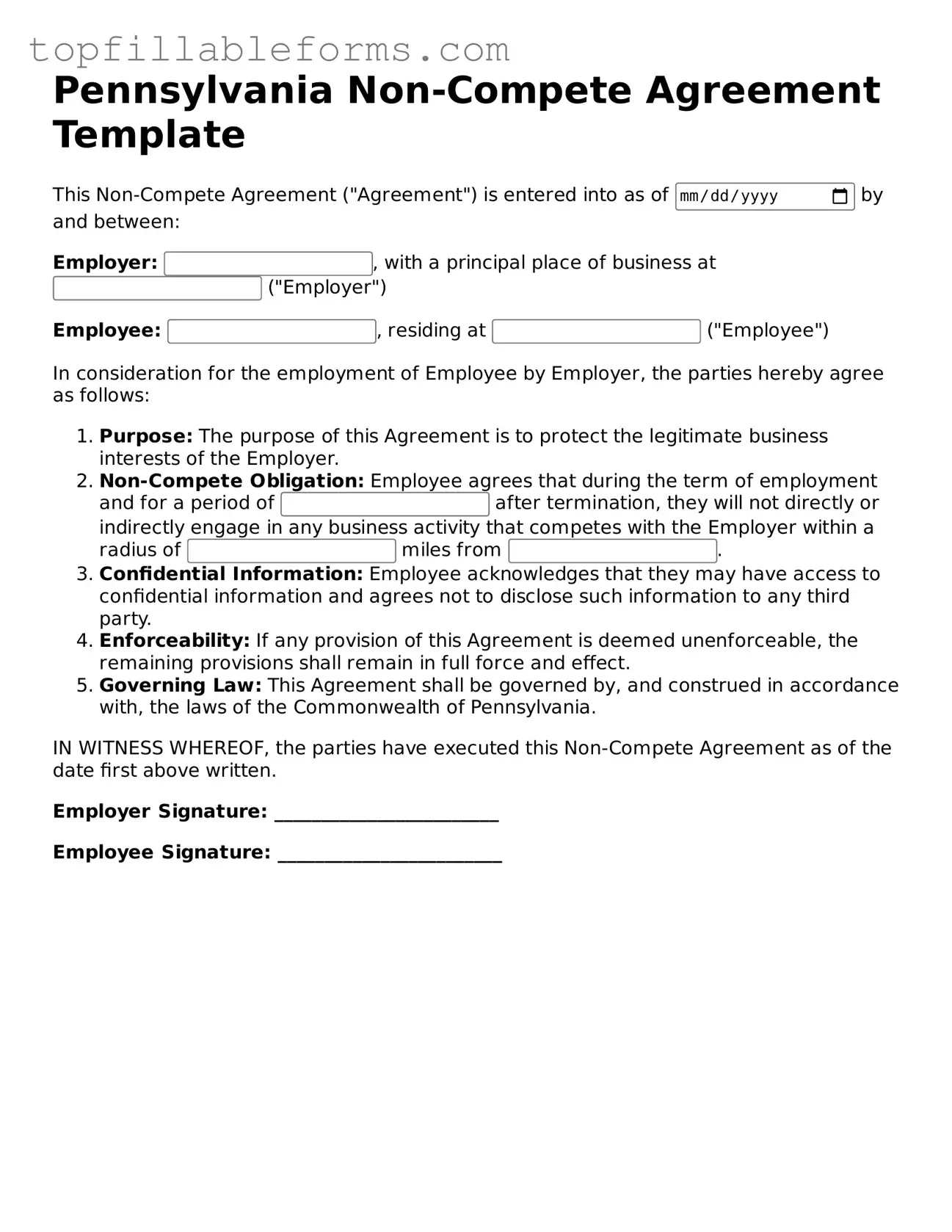Attorney-Verified Non-compete Agreement Template for Pennsylvania
A Pennsylvania Non-compete Agreement is a legal document designed to restrict an employee's ability to work in a similar field or start a competing business after leaving their current employer. This agreement aims to protect the employer's business interests, trade secrets, and client relationships. Understanding the nuances of this form is essential for both employers and employees navigating the employment landscape in Pennsylvania.
Open Non-compete Agreement Editor Here

Attorney-Verified Non-compete Agreement Template for Pennsylvania
Open Non-compete Agreement Editor Here
Finish the form now and be done
Finish your Non-compete Agreement online by editing, saving, and downloading fast.
Open Non-compete Agreement Editor Here
or
▼ PDF File
